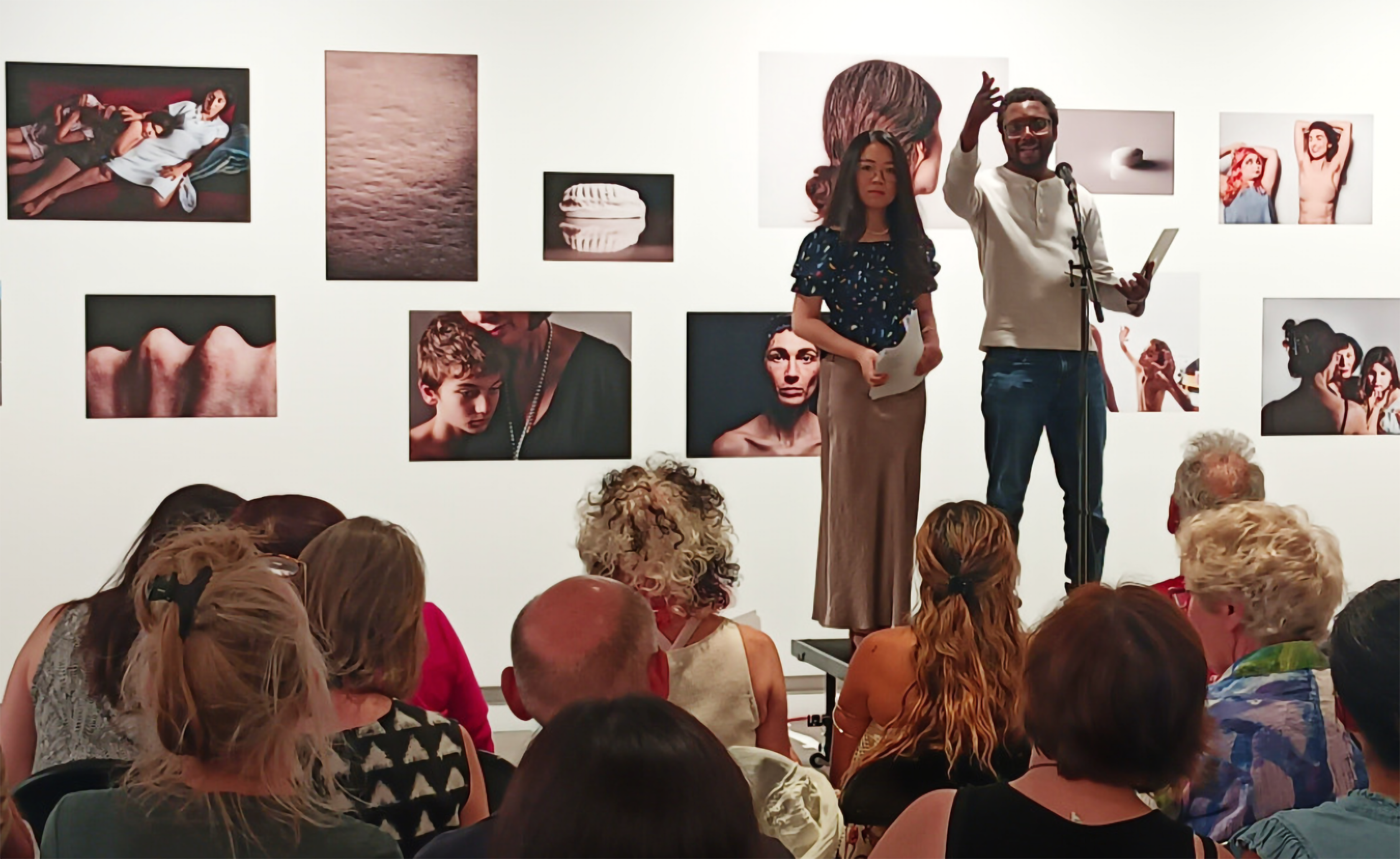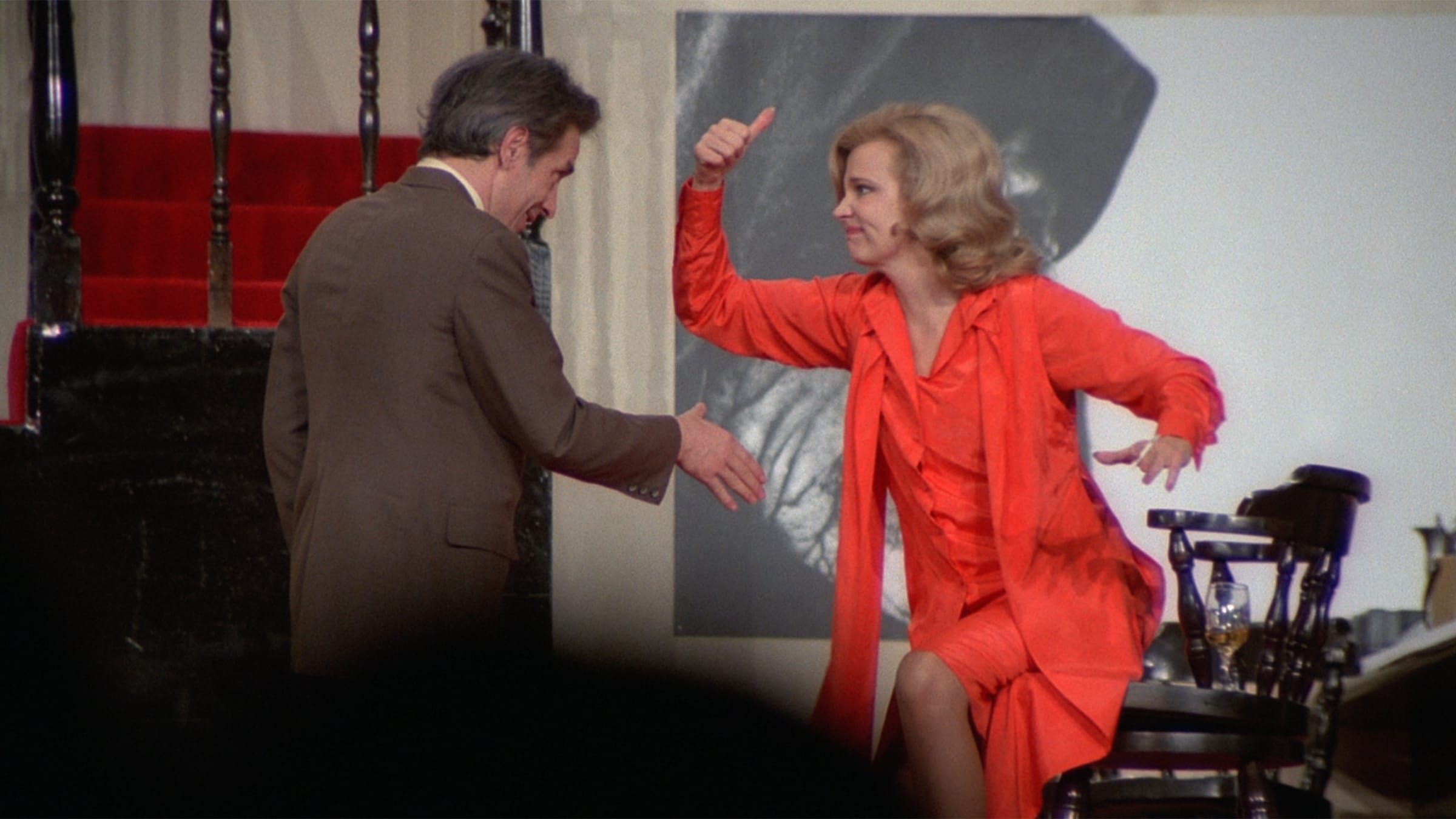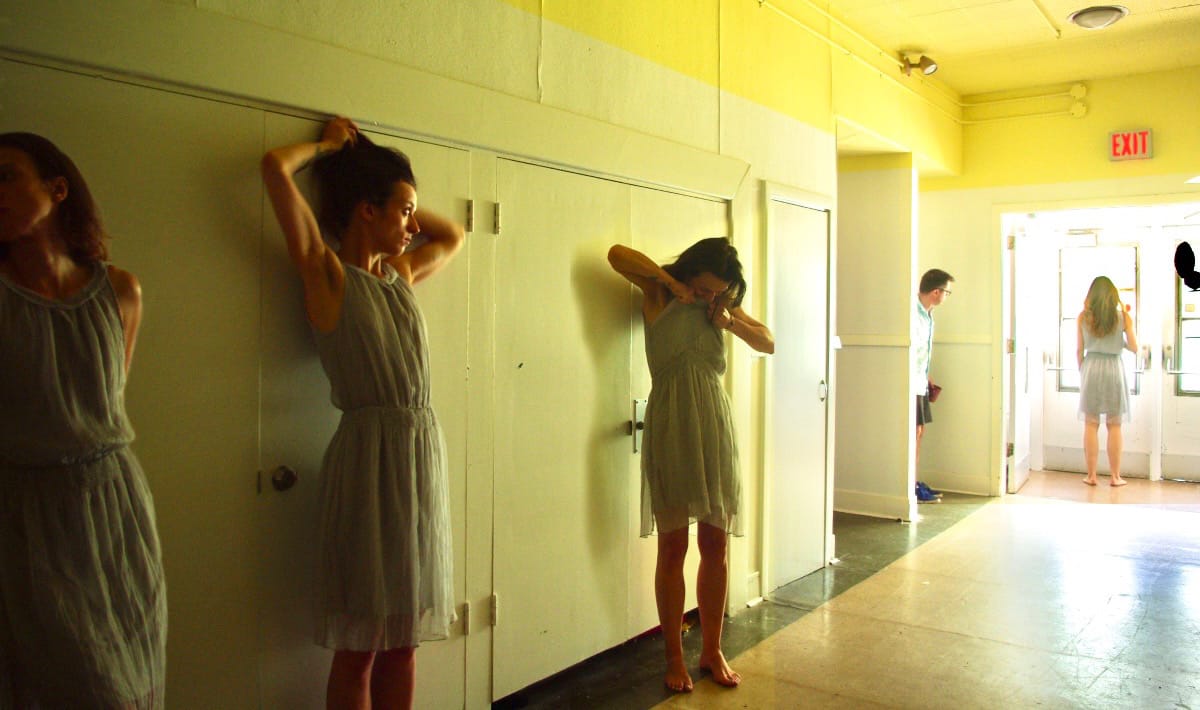Look at Me: Autofiction as Plastic Surgery
Jowita Bydlowska examines the beauty, grotesqueries, and defiant paradoxes of autofiction as performative act of literary self-exposure.
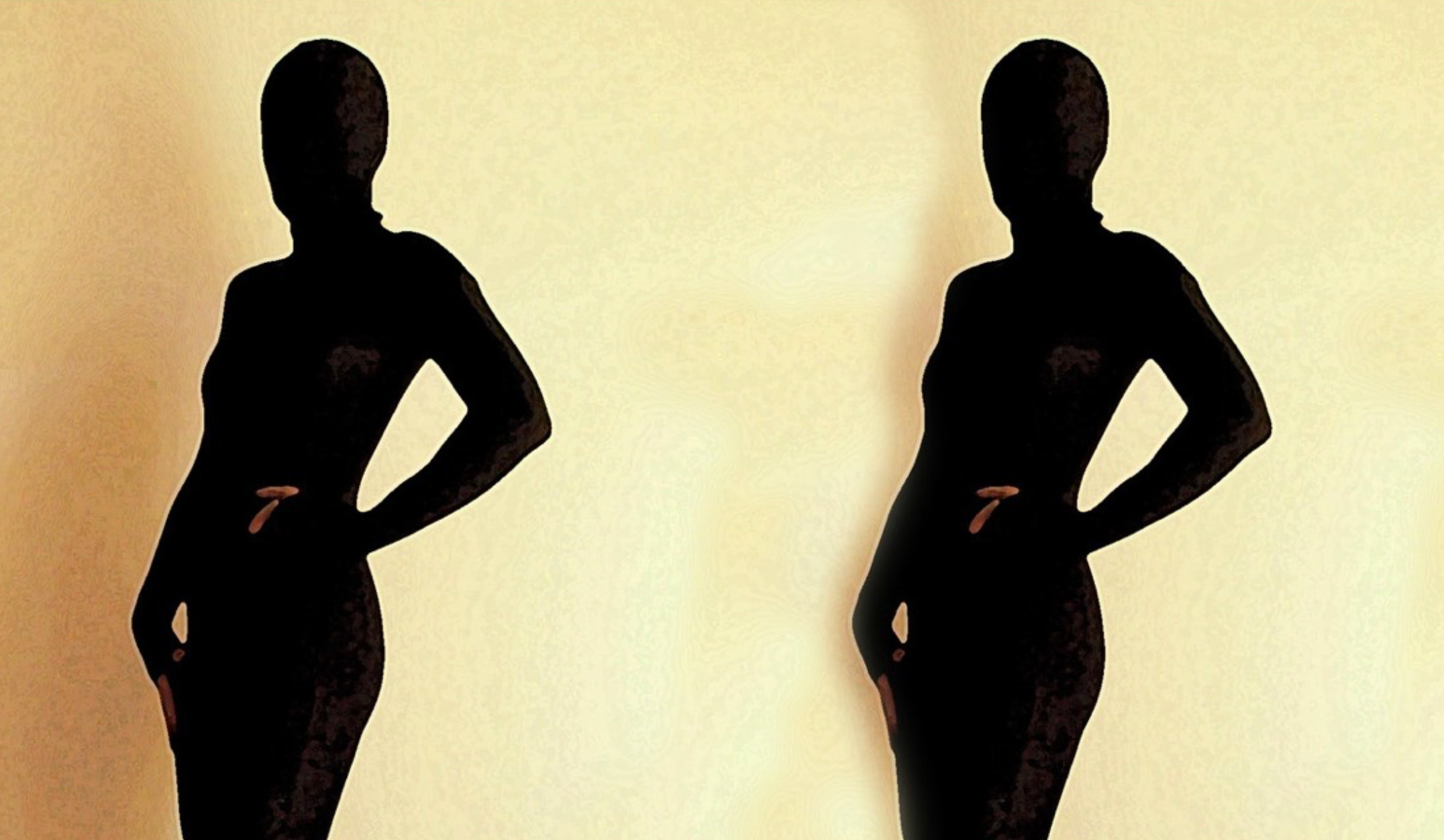
The blonde with the enormous breasts on Instagram was talking about having to train her back so it would be able to support her final implants. Her lips were large and puffy, her nose too narrow for her poreless face, and her cat eyes had shocking neon-blue irises—you know the look, we all know the look, something that shows up in your Instagram Reels at 3 am when you wake up for a moment and grab the stupid thing, your phone, half-asleep.
I didn’t catch her name. But a comment she made stuck, that she considered her body, and how she was shaping it, a work of art. She didn’t reference Cindy Sherman or anything like that but there was self-assurance and self-awareness that made me think she was playing with us, the gawkers, a little bit. Suddenly, I saw her differently: as someone who was in control rather than someone who was being controlled.
The next morning I woke up and tried finding the blonde’s reel again—and her name—but it had disappeared in the pile of husbands being pranked, kittens pushing things off counters, and baby hippos. (Such is my Instagram feed). While people might think of plastic surgery more as an exercise in vanity than fine art, there is something intensely performative and public about it that speaks to our human need to be seen and noticed while also obscured. The same way that writing can be sometimes, the way it was when I recently published a novel called Monster, where I altered some of my own personal experiences and called it “autofiction,” to both distance and reveal myself.
Monster is not my first book. More than a decade ago, I published a memoir called Drunk Mom, which was a story about my relapse into alcoholism after giving birth to my son. It was also my debut into the world of other people having opinions about what I was doing—both for a living and in my private life, since I had just told everyone about being a drunk mom. I was always aware of the fact that the book would bring some notoriety. My publisher even sent me for professional media training so I would know how to field uncomfortable questions, but I was not prepared nearly as well as I should’ve been. I assumed it would be mostly okay, judging by how people reacted to a recent memoir with a similar theme.
A few years before Drunk Mom came out, Christopher Shlugan, another Toronto-based author, published Superdad: A Memoir of Rebellion, Drugs and Fatherhood about being a junkie dad. His drug of choice was cocaine; the book opens with him missing son’s birth in order to step out to score crack. Shulgan was widely celebrated for his bravery and the book’s redemptive story arc, and even rewarded with a parenting column in a magazine. A review in The Winnipeg Free Press called Shlugan’s addiction story insightful and unique. In the same publication three years later, I was berated for getting sexually assaulted while drunk.
And that’s how it went. I was shocked by the articles and reviews that judged me as a person, that didn’t bother commenting on the prose, that predicted my son would grow up to hate me. I was shocked by the hate mail. By the stalkers who would leave deranged comments on my social media. On my Goodreads page, a woman wrote a long rant urging me to tie my tubes. The month Drunk Mom was launched, someone posted a YouTube video with my face and the lines “sexy mom doesn’t know who she slept with, she couldn’t find her undies she was so drunk.” There were insults about my weight. About my son’s visible disability. And so on. Soon enough, I did not want to be looked at at all.
Autofiction, a term introduced by Serge Doubrovsky in 1977, is a literary form that merges autobiography with fiction, where an author draws on aspects of their own life while allowing room for invention. Though the term is modern, the concept is not; works like Augustine’s Confessions and Proust’s In Search of Lost Time also blurred the lines between personal truth and artistic imagination. Recent examples of autofiction include Karl Ove Knausgård’s My Struggle, an exhaustive chronicle of his life that explores memory and identity, with an infamous 70-page-long passage describing his quest to get a little trashed at a party as a teenager. Then there’s Rachel Cusk’s Outline trilogy, which reveals a protagonist’s inner world through the stories of others; Sheila Heti’s How Should a Person Be?, a playful interrogation of art and selfhood; and Ocean Vuong’s On Earth We’re Briefly Gorgeous, a lyrical blend of memoir and poetic fiction.
In all of these works the authors navigate the complex relationship between self-representation and storytelling, creating spaces where truth and imagination coexist, revealing something about themselves but without the burden of a memoirist who is assumed to be telling nothing but the truth, and therefore offering their own self to be judged. The way that I was judged and called an “exhibitionist” when I published a book about being a drunk mom.
Having written both memoir and fiction, autofiction was a genre I was curious to explore—in part as a strategy for navigating peoples’ comments about my “exhibitionism.” It was also my way of reacting to how women’s writing is often viewed, especially writing about romantic relationships, as being less serious and less imaginative. When a woman writes about bad men, in my experience, it makes men nervous. I’ve lost count how many times a new man in my life, after Googling my name, has made a joke about not wanting to be written about. And I have lost count of how many times I’ve been asked by journalists and panelists if what I’ve written was based on my personal experience, even in reference to my first novel, Guy, which was in the first-person from a male point of view. People assumed it was about an ex and some exes assumed it was about them.
Choosing to call my most recent book autofiction also served as a fuck-you to the lengths some men have gone in reaction to my work. In 2022, a former lover threatened to sue me for defamation because he believed that a character in my second novel, Possessed, was based on him. Since I had received the letter from his lawyer on the day of the book’s publication, it was highly unlikely that he’d even read it. While I did once joke that he had inspired a character, I believe that following our break-up this was him trying to get even in the best way he knew how. (I have always said that writing and my books are my life, what better way to destroy an author’s life but to go after her books?) Or, since I was a woman writer, maybe he just came to the natural conclusion that I couldn’t possibly come up with a good love story without exploiting my own life? I’ll never know.
Then later, when Monster was only a first draft, another ex—who was aware of the threat made by the first guy—also warned of a lawsuit. Since we remained friends, I sent him an early version of the novel only to receive an angry email a couple days later. He claimed to recognize himself as one of the characters and called my book an act of revenge. In the end we worked it out by agreeing that we would stop reading each other’s work and he dropped the threat. (Nonetheless, I’ve spent the past few months low-key nervously expecting to still get a letter.)
Two books, two different men trying to silence a woman’s writing. I know my experience is an extreme one, but I have heard from many other women writers who have been likewise accused of harvesting their own lives, told that their writing is nothing but masterfully—or thinly—disguised diary and, sometimes, yes, an act of revenge. This is why I leaned into some of the assumptions about a lack of imagination with Monster. The book is a complicated love letter written by a woman named Jowita/Yoveeta who, like me, is an immigrant, with many experiences that overlap mine, including being a survivor of emotional abuse. I named her Jowita during the process of writing with the intention of changing her name later because I wanted to give Jowita some of my own real feelings; naming her after myself, even just temporarily, was an exercise in extracting those feelings. Then I decided to let her keep the name, since I wanted to short-circuit the question of whether Jowita was me. It was right there in the open. Sure, she is; no she isn’t. I asked my publisher to slap the word “autofiction” on the cover jacket and in the press release. And what a pleasant surprise—I haven’t had to field a single question during my book tour, or from the media, that has been and in the intrusive, presumptuous vein of: How-much-of-Jowita-Yoveeta-is–really-you?
All of it. None of it. In the way that autofiction highlights a paradox that applies to all writing: memoir, ostensibly grounded in fact, is shaped by subjective memory and narrative tools that inherently fictionalize its content, while fiction, no matter how invented, often reveals deeper emotional or experiential truths. And yet, in this sense, all writing is both true and false, and the boundaries between categories like fiction and nonfiction are inherently porous. Autofiction gains particular relevance in the digital age, where identity is increasingly curated and performed online, making the blending of real and imagined selves feel timely and resonant. And while calling Monster autofiction was a bit of an inside joke, and useful for marketing or critical purposes, its fluidity reflects the timeless reality that every story is, in some sense, an act of self-construction and enhancement, whether the author calls it fiction, memoir, or something in between.
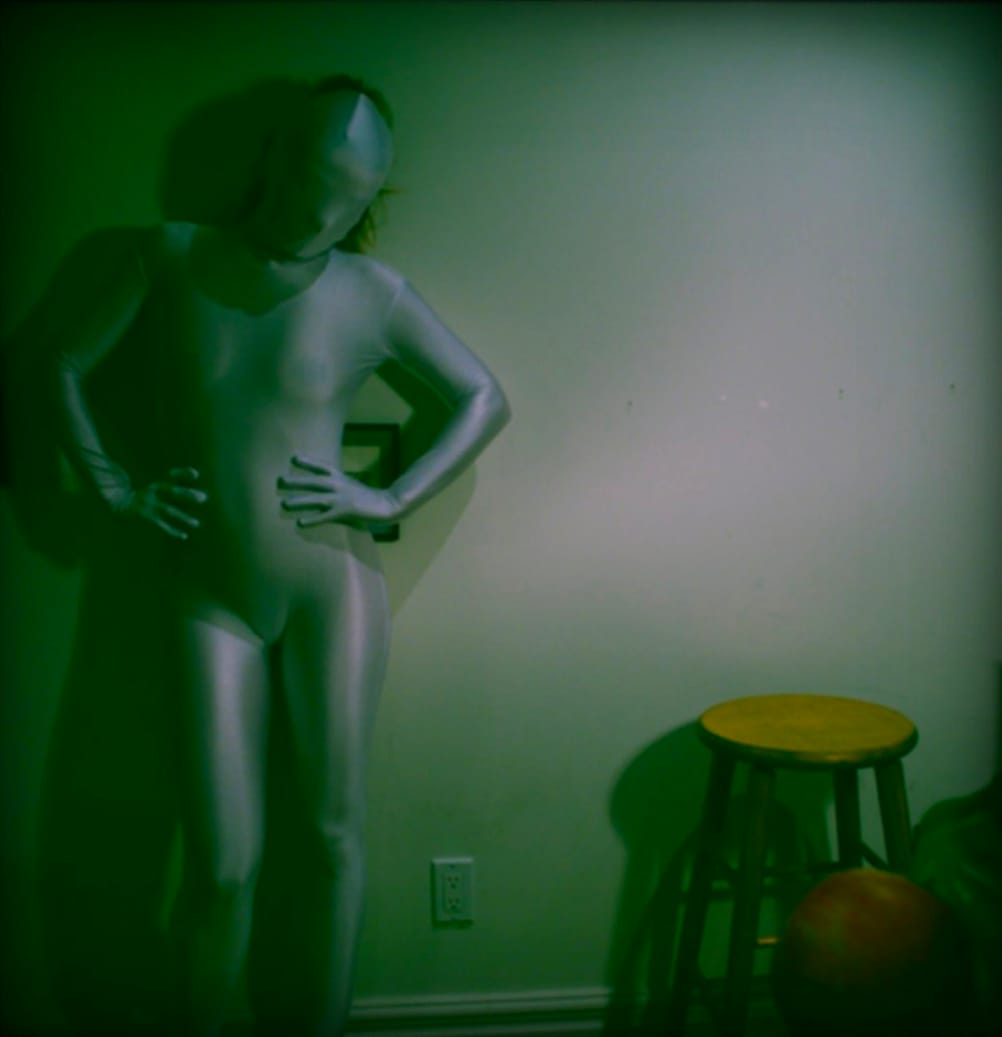
(Art by Jowita Bydlowska)
Having begun my writing career as a memoirist more than a decade ago, I felt that in embracing the idea of autofiction with Monster I was finally coming out the other side of what I experienced with Drunk Mom, while also coming full circle as a writer. I’m able to embrace exhibitionism again, having exaggerated and altered Jowita to the point where she’s no longer me, with her surgically modified story. Jowita the character is a sexual freak and exhibitionist; she asks to be looked at in all of her beauty and body-dysmorphic ugliness. To further distort her I also gave Jowita a Cronenbergian monster to grapple with, an entity that might or might not exist in her body and definitely in her mind.
Similarly, as an author, when I proclaim autofiction, that makes me a certain freak who wants to be looked at via my writing; I invite it. The act of autofiction becomes like extreme plastic surgery in that underneath the fillers and plastic, there’s a body that started all of this. In the book’s case the body is the soul that you dress up to both hide it and reveal it.
Look at me.
There’s a short story by Barbara Gowdy called “Ninety-Three Million Miles Away,” from her collection We So Seldom Look on Love, about a woman who knows she’s being spied on by a man who is not her husband. It’s a classic story of participatory voyeurism as the woman progressively reveals herself to the man who wants to watch. Discussing “Ninety-Three Million Miles Away,” Gowdy once said of exhibitionism:
“It’s wanting to be acknowledged. I think the best thing we can do to people in the world is to acknowledge who they are, who they’re presenting themselves as and it’s a loving thing to do. The more we look, the more we attend to them, the more we see them the more empathetic we are and the more difficult it is for us to do them harm. All failure in the world is failure of empathy and all failure of empathy is a failure of imagination and a failure of attending.”
I think of plastic surgery when talking about autofiction because of the complicity of the audience as voyeurs, who are drawn to the spectacle of transformation while searching for the “truth” underneath. For women especially, this act of shaping one’s narrative or body becomes a way of asserting control in a world that often dismisses their work or appearance as frivolous. Writing about relationships, abuse, or desire is often trivialized as oversharing, much like extreme physical modification is dismissed as vanity. My writing about “bad men” is interpreted as a personal attack rather than a creative exploration. My knee-jerk judgement of a blonde with enormous breasts is dismissive in a similar way. These assumptions are not just insulting—in some ways, they’re attempts to assert ownership over a woman’s narrative.
In the end, both autofiction and plastic surgery reveal a deep human need to be seen, understood, and acknowledged. To me, reducing a woman’s story to an act of vengeance rather than art only highlights the anxiety the audience feels when a woman asserts control over her narrative—whether by writing it or altering her body to her own design. Autofiction, then, becomes an act of revelation disguised as disguise, exposing not just the writer’s truths but the reader’s complicity in looking, judging, but also, hopefully, empathizing as well. It’s both grotesque and beautiful, a paradoxical art form that, like plastic surgery, turns the act of transformation into its own kind of truth.


